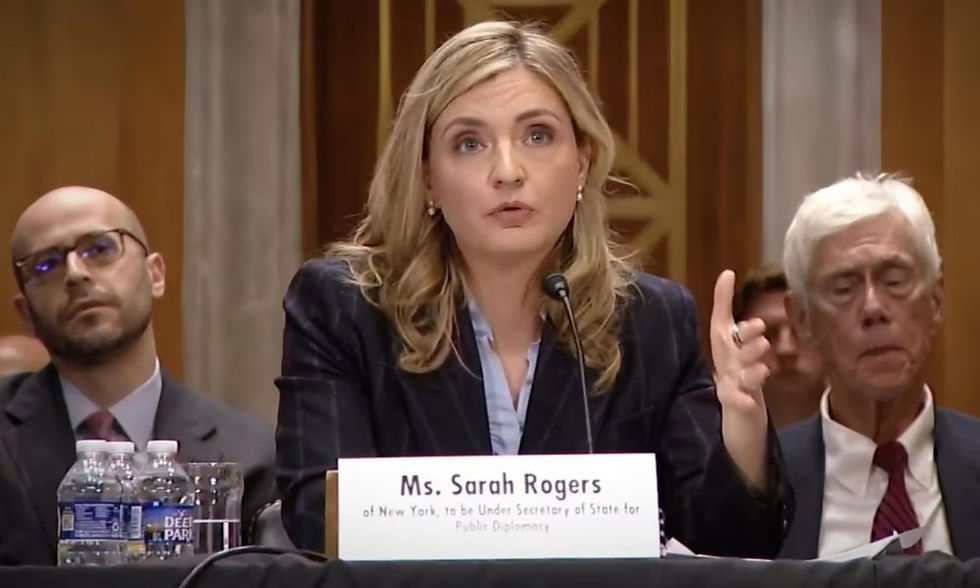Armenia’s top legal envoy resigns as Pashinyan eyes lawsuit withdrawal
- Lia Avagyan | Civilnet
- Mar 7, 2025
- 3 min read

Yeghishe Kirakosyan, Armenia’s Representative for International Legal Affairs, has resigned.
In response to an inquiry from CivilNet, the Prime Minister’s press office stated that “Yeghishe Kirakosyan will be stepping down from his position by mutual agreement reached several months ago, following his personal request.” The statement also refuted media reports claiming that the entire staff of the Office of the Armenian Representative for International Legal Affairs had submitted resignation letters, describing these reports as inaccurate. No reasons were provided for Kirakosyan’s resignation.
Kirakosyan had led Armenia’s Office of the Representative for International Legal Affairs since its establishment in August 2020. Since November 2018, he had represented Armenia at the European Court of Human Rights (ECHR). The office is responsible for defending Armenia’s interests in international courts, including the ECHR and the International Court of Justice (ICJ).
Pashinyan’s readiness to drop cases against Azerbaijan
Prime Minister Nikol Pashinyan has repeatedly stated that Armenia could drop lawsuits against Azerbaijan in a reciprocal manner as part of the peace process. In an interview with Armenian Public Television on November 22, 2024, Pashinyan said that if there were a real opportunity for lasting peace, Armenia would be ready to withdraw its claims against Azerbaijan on a reciprocal basis.
About two weeks after Pashinyan’s statement, on December 9, 2024, Kirakosyan told reporters that Armenia had no plans to withdraw its lawsuits against Azerbaijan from international courts.
“I do not want to express my position, as it would lead to interpretations. It is better to refrain from comments at this stage. There is no such issue on the agenda. Our lawsuits continue to be examined, and the procedural steps necessary to ensure their consideration are ongoing,” Kirakosyan said at the time.
On January 9, 2025, following another set of threats from Azerbaijani President Ilham Aliyev, Pashinyan reiterated his willingness to abandon Armenia’s cases against Azerbaijan in international courts and to dissolve the OSCE Minsk Group format, which had been the main international mechanism for Nagorno-Karabakh conflict resolution for the past three decades.
Armenia and Azerbaijan against each other in international courts
Currently, Armenia has several cases against Azerbaijan in international courts, primarily focusing on human rights violations, war crimes, and breaches of international law.
Armenia’s ICJ case, filed in September 2021, accuses Azerbaijan of violating the International Convention on the Elimination of All Forms of Racial Discrimination. The lawsuit alleges state-level intolerance, racial discrimination against Armenians, violations of prisoners of war (POWs) and hostages’ rights—including torture and inhumane treatment—and destruction of Armenian cultural heritage in Nagorno-Karabakh.
In December 2021, the ICJ partially granted Armenia’s request for interim measures, obliging Azerbaijan to ensure the protection of POWs’ rights and prevent discrimination against Armenians. Notably, on February 22, 2023, the ICJ ordered Azerbaijan to ensure unimpeded movement along the Lachin Corridor, a crucial link between Armenia and Nagorno-Karabakh, which Azerbaijan failed to implement, leading to a severe humanitarian crisis and mass displacement of Armenians following Azerbaijan’s September 2024 military offensive.
At the ECHR, seven interstate complaints involving Armenia are under review. Armenia has filed four cases against Azerbaijan regarding: rights violations during the 44-day war; Armenian prisoners illegally detained in Azerbaijan; violations following Azerbaijan’s invasion of Armenian territory; and the forced displacement of Artsakh’s population. Armenia has also filed against Turkey for supporting Azerbaijan during the 44-day war. Azerbaijan, meanwhile, has two cases against Armenia at the ECHR, alleging violations during the first Artsakh war and the 2020 conflict, including claims of mistreatment of Azerbaijani civilians and prisoners, as well as accusations related to the alleged obstruction of the resettlement of Azerbaijanis in Artsakh and the destruction of property, including cultural and historical sites.
(c) 2025, Civilnet
.png)



Comments